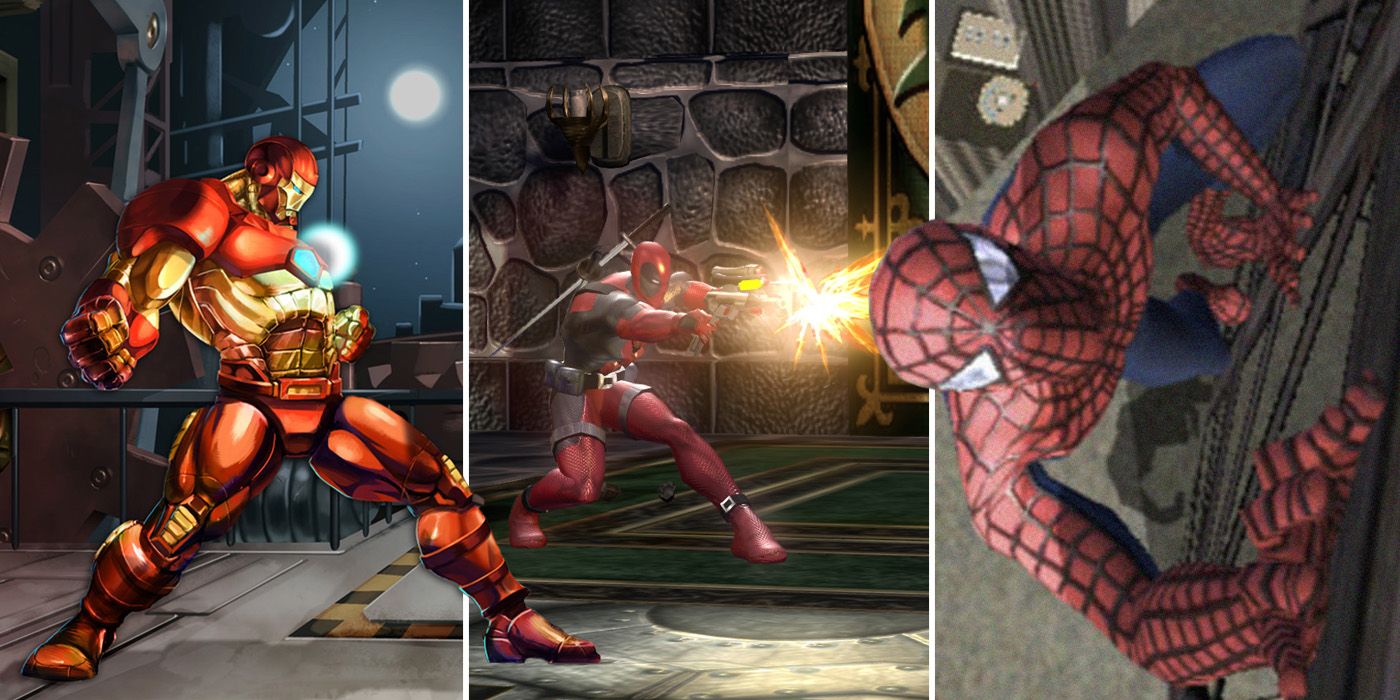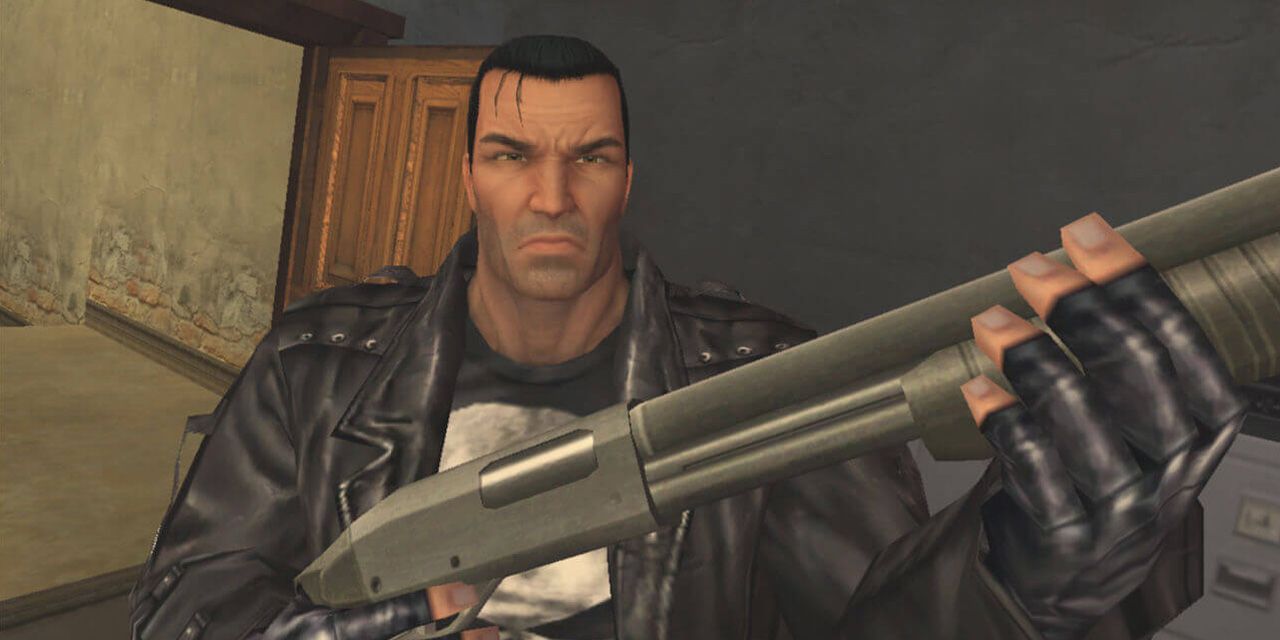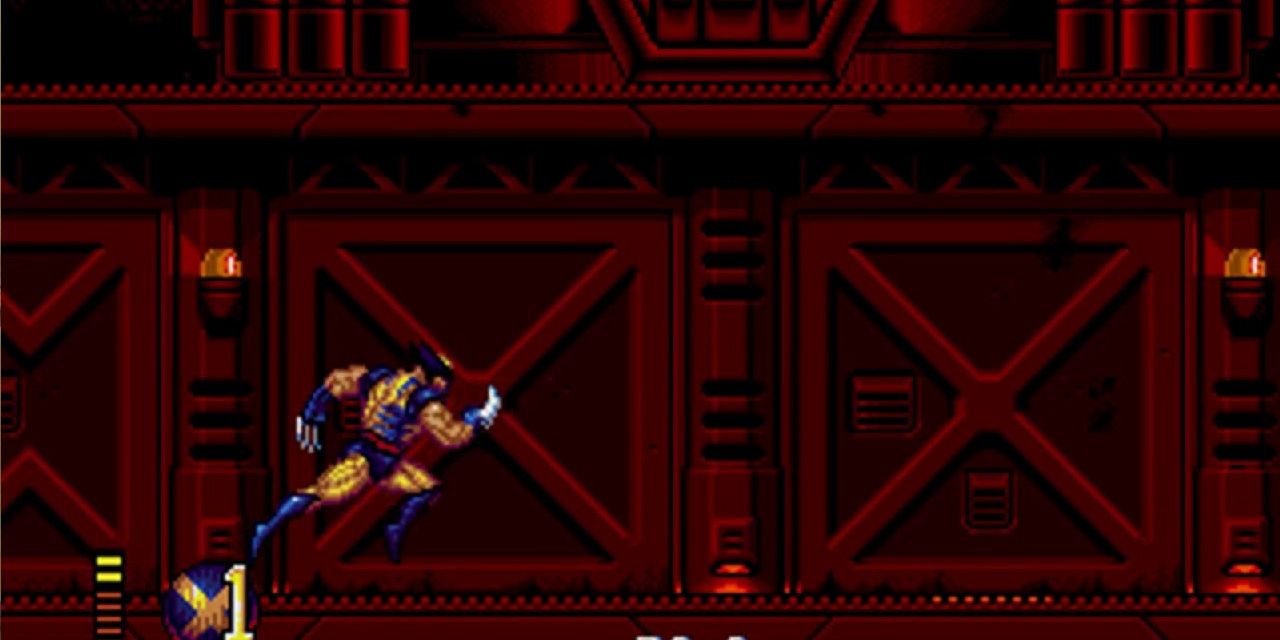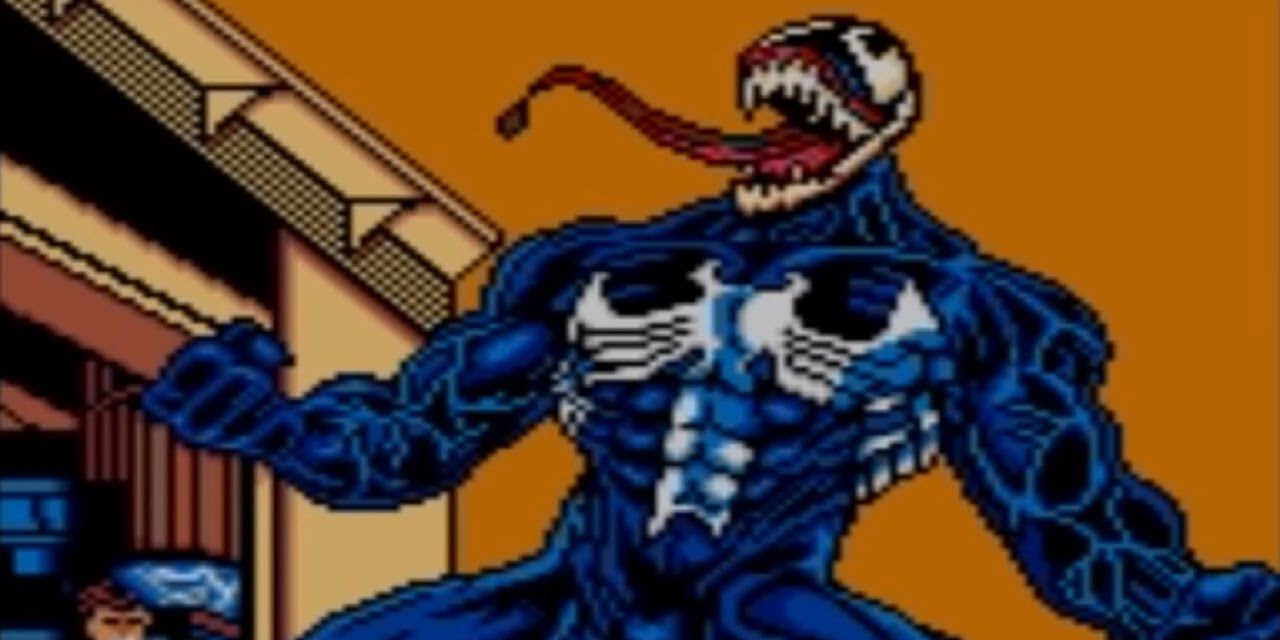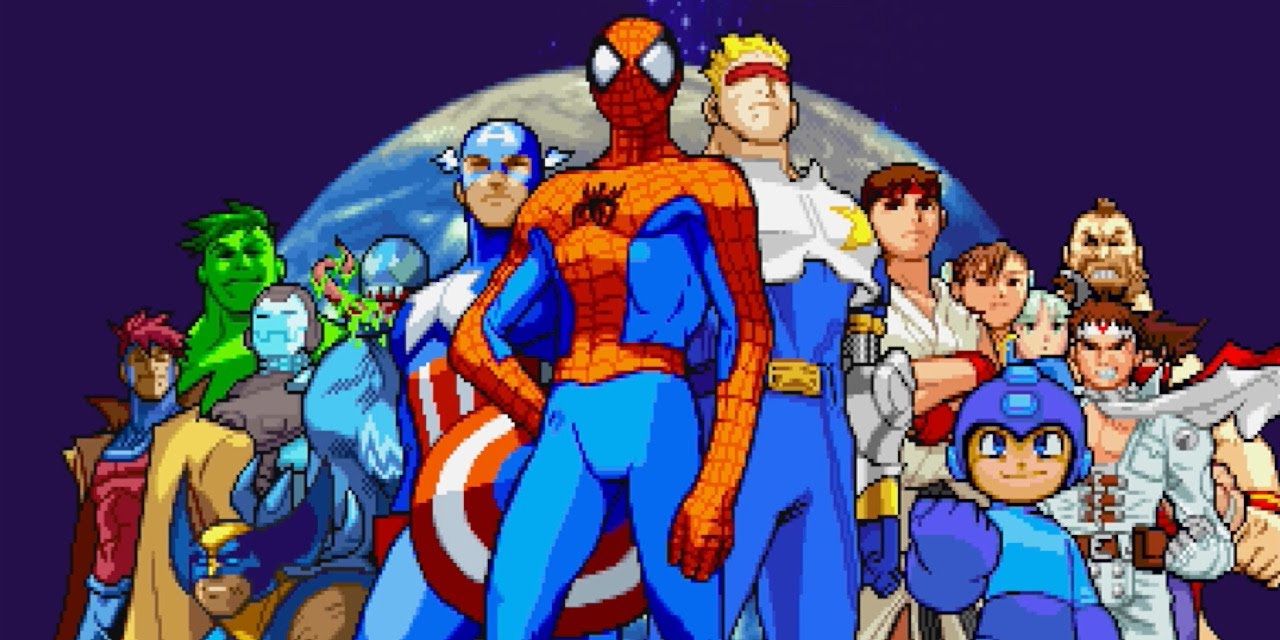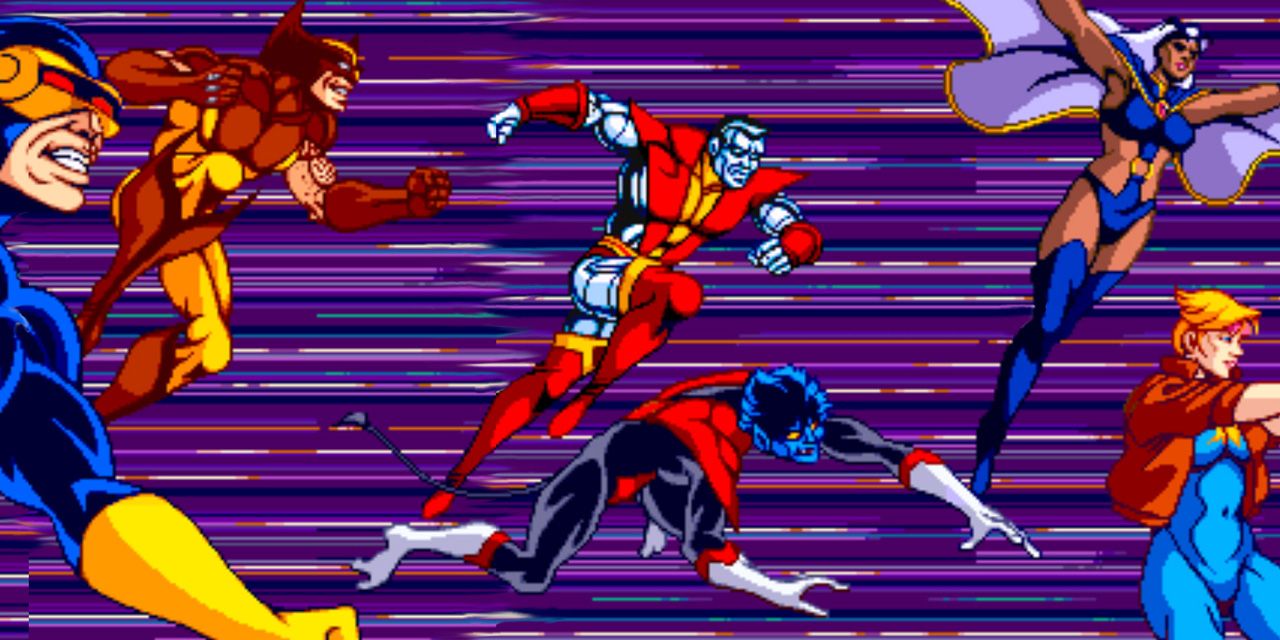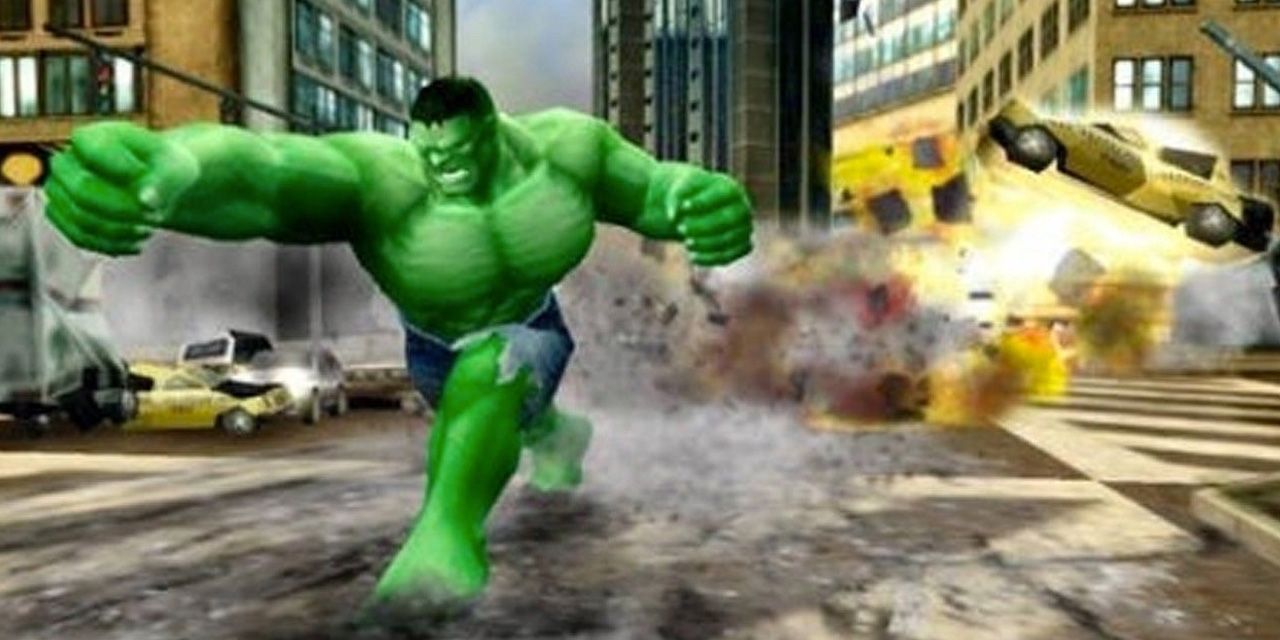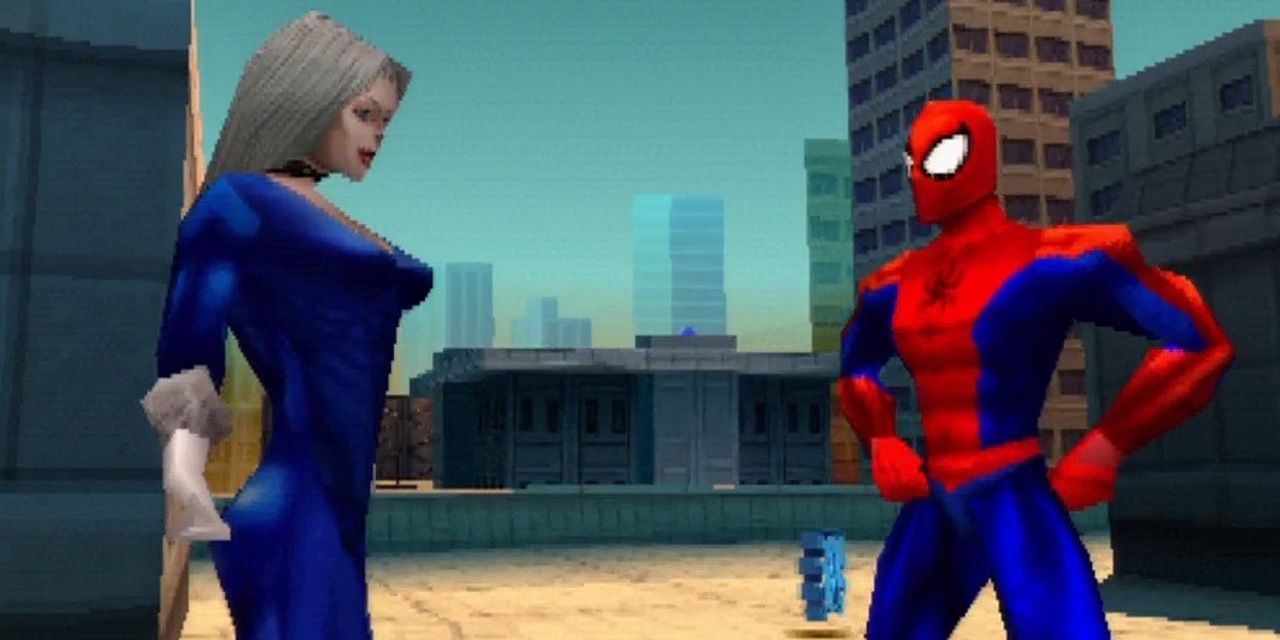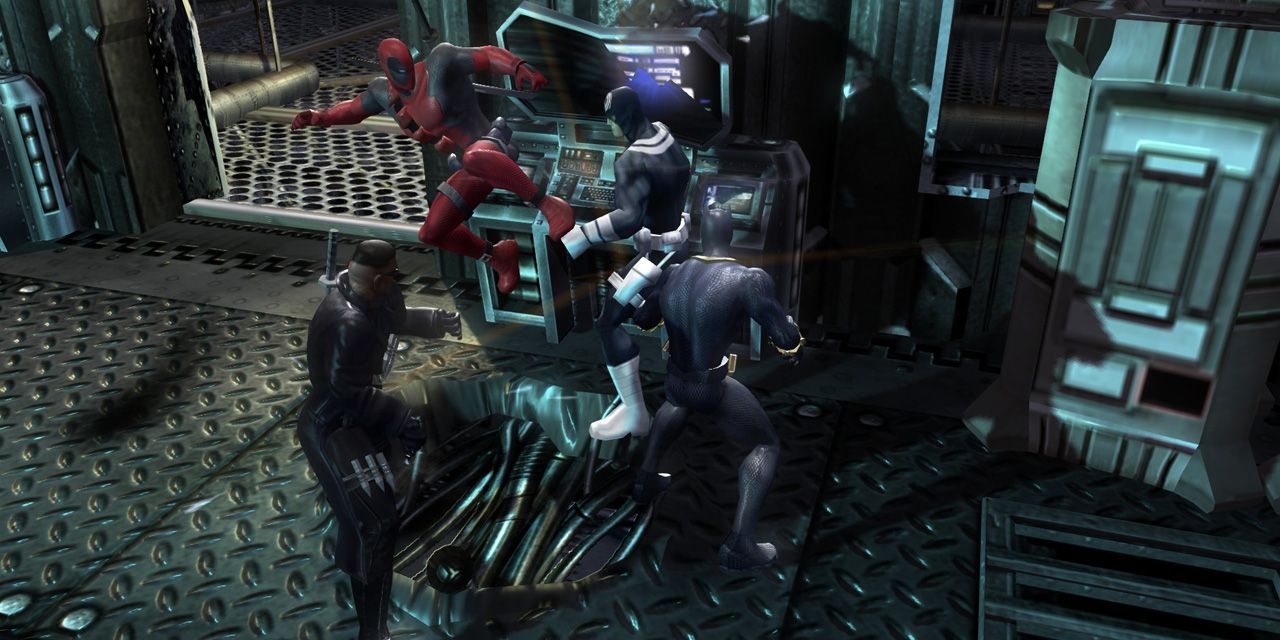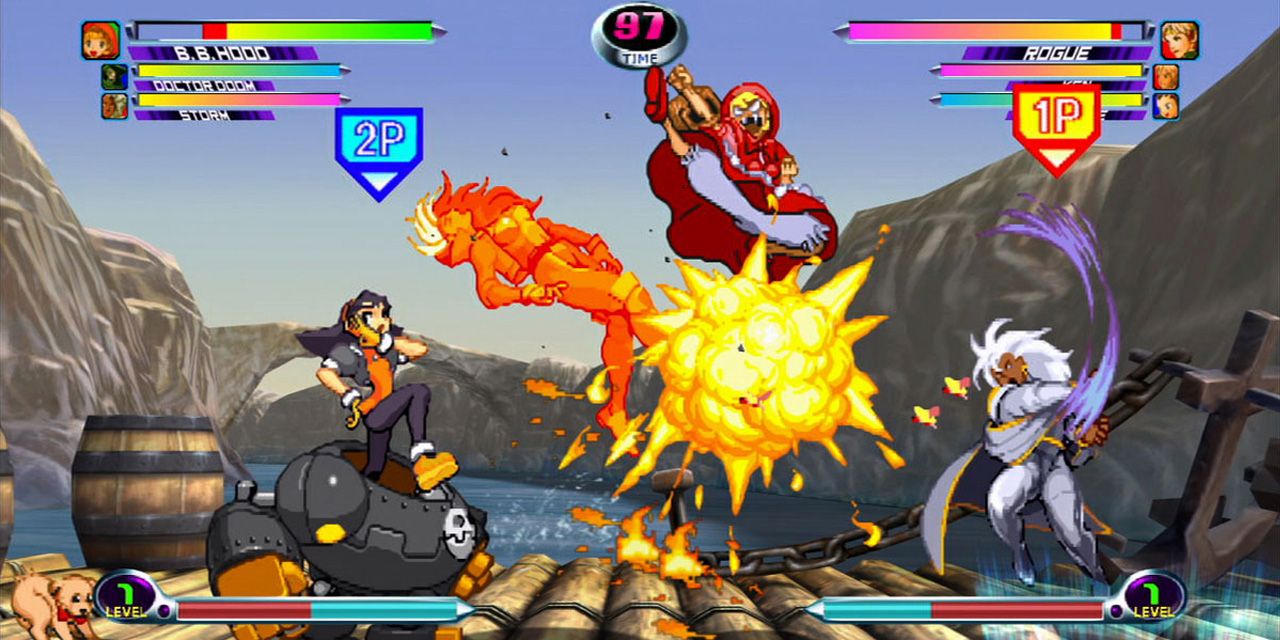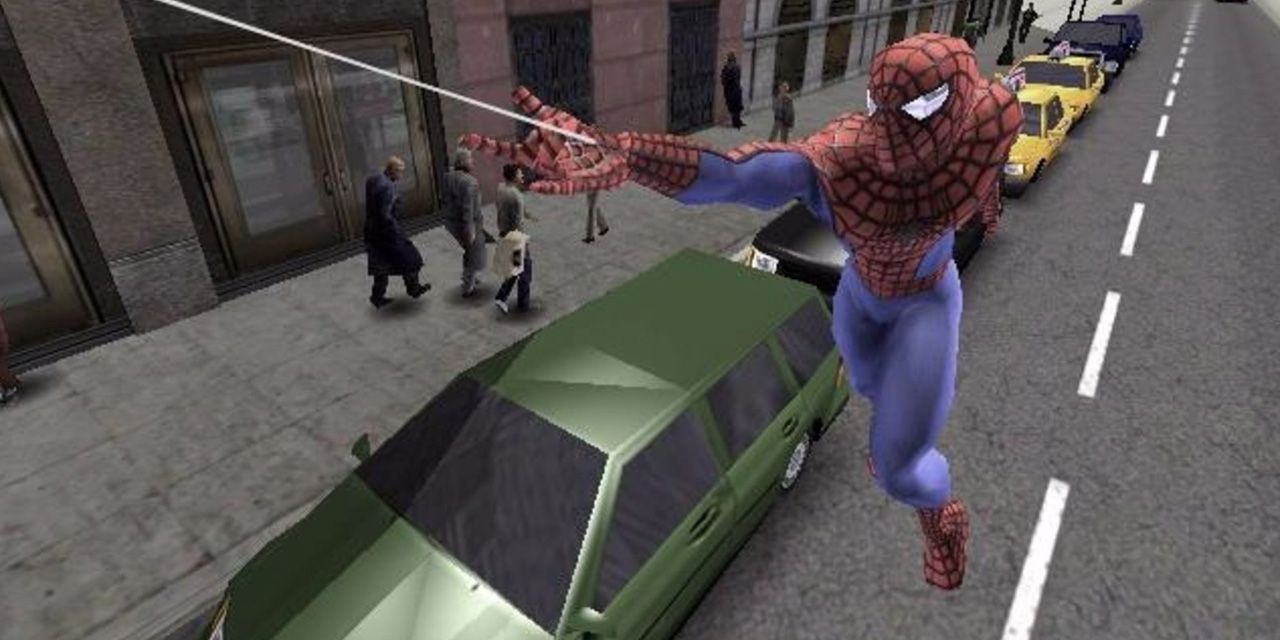While it may have taken a while for superhero movies to become the blockbuster juggernauts that they are today, video games featuring the caped crusaders have been popular since the early nineties. There have been countless superhero games pumped out over the past three decades on just about every console imaginable, most of which are centered around some of Marvel's most popular characters.
As is often the case with video games, however, not all of these titles have quite made the grade. Some were rushed out to tie in with movie releases, while others were entrusted to developers that lacked the skills required to really do the characters justice. Thankfully, however, there are some good retro Marvel games in the annals of gaming history, one or two of which still hold up pretty well today.
10 The Punisher (2005)
Frank Castle's Punisher character never quite reached the same levels of popularity as some of Marvel's other great creations, but that's not to say that his no-nonsense approach to fighting crime is completely bereft of appeal. He's still popular enough to have shown up in three live-action movies over the years, one of which spawned the 2005 video game adaptation, The Punisher.
Offering a nice mixture of stealth and armed and unarmed combat, the game sees Castle going toe to toe with a Yakuza gang known as the Eternal Sun. As one might expect from a game based on The Punisher, the initial cut received the rare "Adults Only" rating from the ESRB. This forced developer Volition to tone down the violence a little, as neither Sony nor Microsoft allowed games with the AO rating onto their systems at the time.
9 X-Men 2: Clone Wars (1995)
Releasing for the Genesis some two years on from the first X-Men game for home consoles, X-Men 2: Clone Wars is a platformer that is somewhat reminiscent of early Mega Man games in terms of both its design and its visuals. The cold open can be a little jarring and the inability to select a character for the first stage is a bit of a letdown, but the game really comes into its own after that.
Each of the seven playable characters controls differently and the animations for their mutant power attacks were pretty impressive for the era. Combat can be a little hit and miss at times, but the story is interesting, the sound effects and music are decent and the overall experience is a lot of fun. All in all, it offers solid, albeit unspectacular improvements over its predecessor, which was already a great game in and of itself.
8 Spider-Man and Venom: Maximum Carnage (1994)
LJN doesn't have the best reputation when it comes to its 8 and 16-bit offerings for early home consoles, but Spider-Man and Venom: Maximum Carnage is one of the developer's rare non-cringeworthy efforts. It's also one of the few games that were better on the Genesis than they were on the SNES; making it something of a collectors' item on both counts.
The game sees Spider-Man and Venom team up to take down Carnage and his army of criminals and borrows much of its story from the Spider-Man Unlimited comic books. It features stylized cutscenes, numerous power-ups, and classic beat 'em up action that's as good as all but the very best that the nineties had to offer. The lack of enemy variety does let it down a little, but isn't nearly enough to distract from what is otherwise a fun side-scrolling beat 'em up.
7 Marvel vs. Capcom: Clash of Super Heroes (1998)
Though there had already been a few big crossover fighting games like Fighters Megamix and Marvel Super Heroes vs. Street Fighter at the time of its release, Marvel vs. Capcom: Clash of Super Heroes is arguably the first title to really get the formula right. The gameplay is excellent and the Dreamcast port was every bit as good as the arcade version; something that was fairly uncommon at the time.
By modern standards, its 15 playable characters may seem a little lackluster, but it was more than enough for most players. There were also 20 additional unplayable guest characters and six secret palette-swapped characters, which helped to add a bit more variety. The series would further improve with future entries, but that likely wouldn't have been possible were it not for the solid foundation laid down right here.
6 X-Men (1992)
It's been a while since anybody has put out a good X-Men game, but there were actually quite a few of them in the early nineties. One of the more notable examples was X-Men, which released in arcades the world over back in 1992. Developed and published by Konami, the game was a big hit with players and allowed them to choose between six of the series' most iconic mutants.
While it wasn't quite on the same level as some of the other great arcade beat 'em ups of the era like Turtles in Time and The Simpsons Arcade, the excellent combat and six-player functionality really did help to make the game stand out. So much so, in fact, that it was ported to PSN and the Xbox Live Arcade some two decades later, with mobile versions of the game also releasing in the years that followed.
5 The Incredible Hulk: Ultimate Destruction (2005)
Although a lot of the more recent superhero games tend to focus a lot of their attention on crafting engaging narratives, many of the earlier examples were all about combat. The Incredible Hulk: Ultimate Destruction is very much in this vein, and does a fantastic job of capturing the brute force and destructive power of the Hulk while simultaneously making players feel like an absolute boss.
While the game's combat is undoubtedly its biggest strength, that isn't to say that it doesn't have other things going for it as well, with its well-fleshed-out narrative also worthy of praise. Granted, it's a little on the short side, but what's there is expertly written and is backed up by some solid graphics and some of the best boss fights to have ever graced a superhero game.
4 Spider-Man (2000)
Not to be confused with the 2002 or 2018 titles of the same name, Spider-Man was developed by Neversoft and released for a number of home consoles in late-2000. It was arguably the first Spider-Man game to really nail the web-slinging mechanic and features excellent combat, a nice variety of enemies, and a fantastic story that features many of the series' best villains as it gradually unfolds.
A lot of the elements and mechanics found in the title would go on to become series staples and did an excellent job of capturing what it might feel like to swing a mile in Peter Parker's suit. It did have one or two niggling issues when it came to camera and controls and the graphics really haven't aged all that well, but it was easily the best Spider-Man game on the market at the time of its release and therefore a must-play for all Marvel fans.
3 Marvel: Ultimate Alliance (2006)
With over 140 characters, an expansive story with multiple endings, and beautifully rendered visuals, Marvel: Ultimate Alliance is an incredibly impressive title. Everything about the game just feels right, from its intuitive and enjoyable combat right down to its creative implementation of side quests. All things considered, it's really no surprise that the game received two sequels and was ported to the PS4 and Xbox One in 2016.
Unfortunately, neither of the sequels was really able to capture the same energy as the original, despite both being developed for systems with far more processing power at their disposal. Marvel Heroes is perhaps the closest anybody has come to replicating the excellent multiplayer combat on offer in Ultimate Alliance, although the game was ultimately shut down to clear a path for the 2020 flop, Marvel's Avengers.
2 Marvel vs. Capcom 2: A New Age of Heroes (2000)
Following the success of the first Marvel vs. Capcom game, it was only a matter of time before Capcom developed a sequel. It arrived just two years on from its predecessor and improved upon it in just about every conceivable way. The number of playable characters jumped from 15 to 56, combat was further refined and the visuals on display in Marvel vs. Capcom 2: A New Age of Heroes were far more polished.
The Dreamcast release of the game led the way once more, further strengthening the system's reputation as the best home console for fighting games. It was also one of the first home console fighting games to feature online play, although this functionality was initially limited to players in Japan. Assists once again played an important role, with each character now possessing three different types, introducing yet another layer of depth to an already strategic fighting game.
1 Spider-Man 2 (2004)
Before Marvel's Spider-Man released in 2018, Spider-Man 2 was widely considered to be the best Spider-Man game of all time, and it's easy to see why. The game looked fantastic for the era and featured one of the most life-like depictions of New York to have ever graced a video game. Its open world was absolutely huge too, and each of the city's areas was packed full of things to see and do.
Unlike previous Spider-Man games where the titular character simply shot web haphazardly into the air to swing through the city, players actually needed to target their web at buildings to avoid falling. This, together with the game's excellent graphics, provided an air of realism that earlier efforts just couldn't quite capture. Combat could perhaps have been better and the music felt a little awkward at times, but considering it released in 2004, Spider-Man 2 remains a mightily impressive game.

